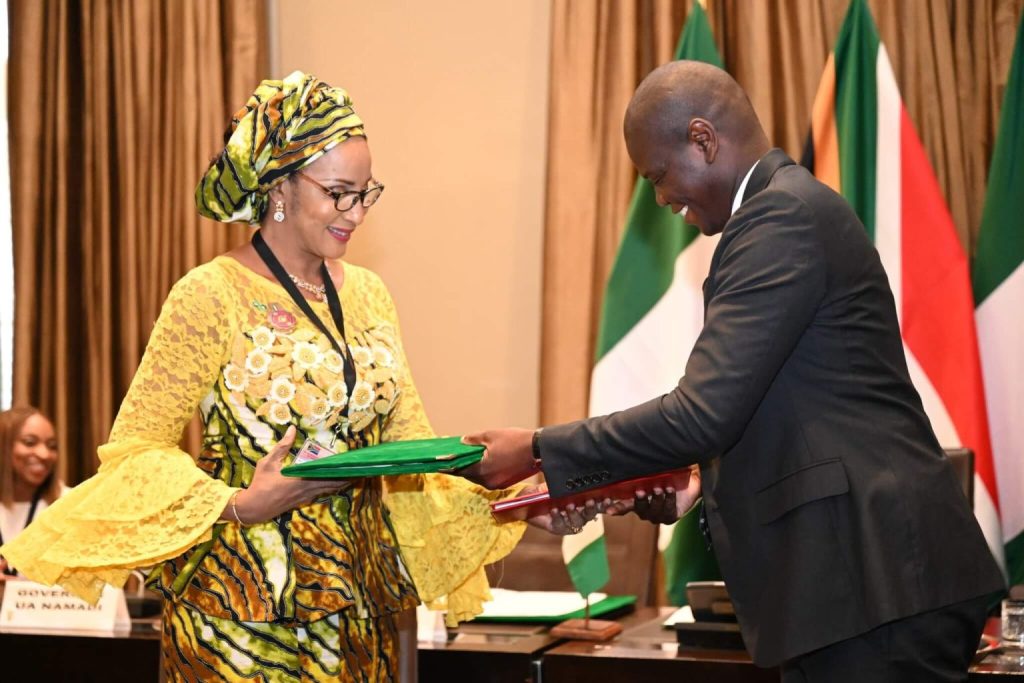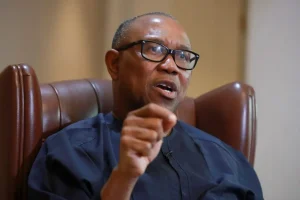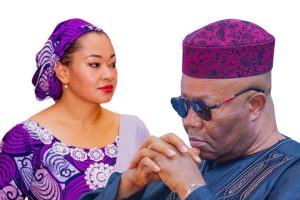
Nigeria and South Africa Strengthen Economic Ties with Joint Ministerial Advisory Council
Nigeria and South Africa have taken a significant step towards enhancing their economic partnership by fully operationalizing the Joint Ministerial Advisory Council on Industry, Trade, and Investment. This initiative aims to foster deeper cooperation between the two largest economies in Africa.
The announcement was made on Tuesday by South African President Cyril Ramaphosa during the Nigeria-South Africa Business Roundtable in Cape Town. The event, attended by business leaders, government officials, and trade stakeholders, provided a platform for both nations to reaffirm their commitment to strengthening economic relations.
Nigeria’s Commitment to Economic Growth
A statement from President Bola Ahmed Tinubu’s Special Adviser on Information and Strategy, Bayo Onanuga, emphasized Tinubu’s assurance that Nigeria is “open for business.” The President pledged to provide stability, security, and a rule-of-law environment to enable businesses to thrive.
President Tinubu highlighted his administration’s ongoing economic reforms, aimed at fostering growth and attracting foreign investments. He encouraged South African businesses to expand their operations in Nigeria while calling for reciprocity by urging South Africa to create an enabling environment for Nigerian companies.
“Nigeria and South Africa are co-joined twins tied by the hips, not only for survival but for the prosperity of the people,” Tinubu remarked.
He added, “The reforms we’ve undertaken are already yielding results. You have no better investment destination than Nigeria. The returns on your investments in Nigeria are unmatched anywhere else.”
Reviving the Joint Ministerial Advisory Council
President Ramaphosa recalled that the Joint Ministerial Advisory Council on Trade was first launched during his State Visit to Nigeria in 2021. The council was established to address trade and investment barriers, align policies, and create a business-friendly environment for stakeholders in both nations.
“Today, we have agreed on the full operationalization of the Council,” Ramaphosa announced. “This will facilitate a conducive environment for enhanced trade and investment and ensure the efficient resolution of related challenges.”
Moving Beyond Oil and Gas Dependency
Ramaphosa stressed the importance of diversifying trade relations between the two nations, moving away from a dependency on oil and gas. He noted that South Africa currently runs a trade deficit with Nigeria due to its reliance on oil imports, but both countries could benefit from a more diversified partnership.
“We need to explore other sectors and ensure a mutually beneficial trade relationship,” Ramaphosa stated. “We are encouraged by the presence of South African companies in Nigeria, just as we welcome Nigerian businesses operating in South Africa.”
Overcoming Challenges
Both leaders acknowledged the challenges that have historically hampered investments and business growth in their respective countries. They pledged to address these barriers through the Joint Ministerial Advisory Council and other collaborative frameworks.
Ramaphosa expressed optimism about the future, emphasizing the importance of fostering an environment where businesses from both nations can thrive. “The Council will ensure we address these issues efficiently, paving the way for stronger economic ties,” he added.
A Shared Vision for Africa
The operationalization of the council symbolizes the commitment of Nigeria and South Africa to not only strengthen their bilateral relations but also drive prosperity across the African continent. Both leaders underscored the strategic importance of their nations in their respective regions, emphasizing the need to work together to achieve shared goals.
As the two largest economies in Africa, Nigeria and South Africa’s collaboration is expected to set a benchmark for regional economic integration and development, signaling a new era of mutually beneficial cooperation.





